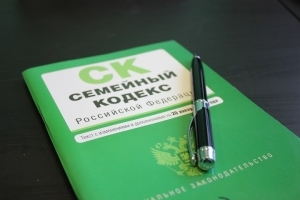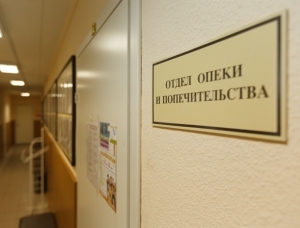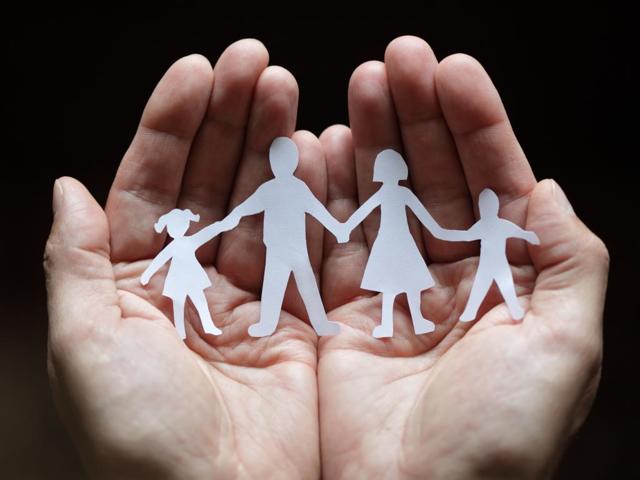Family law > Custody > In what cases can custody of a child be established with living parents?
- The custody of biological parents retains their rights, but may completely deprive them of the right to care for and raise their child.
- The procedure for establishing guardianship and guardianship is set out in chapter 20 of the Family Code.
- Russian legislation regulates in detail how to establish custody of a child with living parents, which payments are payable to the guardian.
Trusteeship and trusteeship
Article 145 defines the main distinguishing features between guardianship and guardianship: custody of children up to the age of 14, custody of children from the age of 14 to the age of majority.
When a child is placed in care, it must take into account his or her opinion and wishes; if he or she has reached the age of 10, the guardian must be appointed with his or her consent.
The purpose of guardianship is the maintenance, upbringing, education of the child and the protection of his or her rights and interests in various bodies.The guardian shall be appointed within one month of the date of the application.
Care may be voluntary and recompensableIn exchange custody, there is a fixed-payment contract.
Every year, the guardian must report the expenses; the money paid for the child must be spent on the child ' s maintenance, not for personal purposes.
Consider the situations in which guardianship can be established.
Conditions for the registration of guardianship
The custody of minor children does not have the right to register citizens (art. 146):
- who have been deprived of their parental rights;
- Underage persons;
- Criminally prosecuted for crimes against life, health and so on;
- With no or no conviction for serious crimes;
- Not specially trained (no need for close relatives of children to receive training);
- If there is a criminal record;
- with chronic alcoholism, drug addiction;
- With oncology, infectious diseases, mental disorders;
- Persons with disabilities in groups I, II;
- Previously suspended from guardianship duties;
- The former adoptive parents responsible for the cancellation of the adoption;
- If there are diseases with which a child cannot be taken into care, cared for and maintained;
- not in accordance with the requirements of personal, moral qualities.
The guardianship and guardianship authorities (PLOs) must take into account and verify:
- The capacity of the alleged guardian;
- His moral and personal qualities;
- is able and willing to perform the duties of guardian;
- The candidate ' s attitude towards the child;
- The desire of the ward.
The following persons are entitled to become guardians:
- Grandpas;
- Grandma;
- Adult brothers, sisters;
- Uncles, other relatives.
The guardianship is established until the child reaches the age of 14, and the child is taken into custody after and until the age of the child ' s majority.
Why Care With Living Parents
The custody of minor children with living parents is usually provided if:
- Parents cannot care for their children because of various diseases;
- The court ordered that parents be deprived of parental rights (permanent guardianship is established);
- Parents work in another State or city;
- A child under 16 years of age attends an educational institution in another city;
- The mother or father often travels on a mission or works on a watch basis;
- Parents are unable to support their child.
In the latter few cases, temporary guardianship is established and parents are not deprived of parental rights and duties.
If the child is suspected to be in danger, he or she will be taken away from his or her parents and handed over to the PLO or relatives by decision of the PLO and the Public Prosecutor ' s Office; the decision will be executed immediately and a trial will be conducted.
The temporary custody of a child by a grandmother with living parents is a standard scheme, but State material support is not provided.
It is common for parents to be sick, to go on business or to work in a different city, where their grandparents are not older than 60 years of age.
The right of a child in care
The ward shall have the right to:
- To be brought up and to live in the guardian ' s family;
- To receive his care;
- To be provided with conditions for material maintenance, upbringing, development and respect for human dignity;
- To receive alimony, pension, benefits and other social benefits to which he is entitled;
- To obtain protection, ownership of housing;
- To be protected from abuse by the guardian;
- receive the money paid to him by the State every month.
Rights and duties of the guardian
Parents or other relatives may appeal against the actions of the guardianThe PLO will oblige the guardian to stop violating the rights and interests of the ward.
If the violations were not resolved, the parents could bring the matter before a court; if the guardian failed to comply with the court decision, he could be suspended from guardianship.
The guardian has the right:
- To demand the return of the child under guardianship from any person holding the child illegally;
- Choose the method of upbringing, the school, the form of education (taking into account the child ' s opinion, the recommendations of the PLO).
But the guardian cannot prohibit the ward from communicating with the parents if such communication is in the child's best interests.
Many citizens do not know what it takes to have custody of a minor child if he or she has parents.
Documents for guardianship
The guardian candidate applies for a certificate of guardianship and a package of documents to the PLO either in person or through the State Services portal.
List of documents:
- Passport;
- Statement;
- The employer ' s certificate (with job description, amount of income);
- An extract from the home book from the place of residence or other documentation confirming the right to use the dwelling;
- A statement from the internal affairs authorities that there is no criminal record, no criminal prosecution;
- A medical report on the health status of candidates who have expressed a desire to become guardians;
- If the applicant is married, a copy of the marriage certificate must be provided;
- The written consent of persons who have reached the age of majority in the candidate ' s family shall also be taken into account by the PLO in the opinion of children who have reached the age of 10;
- A copy of the certificate of training of a citizen intending to take custody of a minor child;
- The number of the personal account to which the benefit will be transferred;
- Autobiography.
If the guardianship is established with the consent of the parents, it must be provided in writing; the parents shall specify, in agreement, the period for the transfer of custody and the name of the guardian.
Originals of documents must be provided to the PLO even if copies are sent via the InternetIf the originals are refused, the candidate will be denied the opportunity to become a guardian.
Procedure
On the basis of the results, staff members file a housing survey certificate within three days in two copies, which may be challenged by the applicant.
The PLO shall take a decision within 10 days on the basis of all the information received on the candidate; if the refusal is received, the reason shall be given.
Together with the refusal act, the PLO will return the documents, explain the appeal procedure, and the copies will remain in the archives.
Conditions for termination of guardianship
The guardianship and guardianship shall cease if:
- The child is 14 years of age (automatically, then placed under guardianship);
- The guardianship shall be terminated automatically as soon as the ward reaches the age of majority;
- The minor has entered into marriage;
- The child under guardianship works independently, so there is no need for material support;
- The guardian wished to terminate the contract because his health or financial situation had deteriorated;
- The guardian has violated the law;
- The guardian is dead.
Payment to the guardian
The following citizens receive monthly payments:
- Workable persons (aged 14-55 for women, up to 60 for men);
- Persons without basic or additional income who are not employed and have not joined the labour exchange;
- Persons who care for a person with disability in groups 1-2 (excluding persons with disabilities since childhood), an elderly person in need of permanent care who is over 80 years of age.
The amount of monthly benefits is determined at the level of the constituent entity of the Russian Federation..
In Moscow, for example, they pay:
| Age | Value |
| Under 12 years of age | 16,500 rubles |
| Over 12 years of age and under 18 years of age (if there are more than 3 children in the family, the amount is increased by 3,300 roubles) | 22,000 rubles |
| Disabled child | 27,500 rubles |
These amounts are paid only to the child being cared for, and are only spent on the child ' s maintenance.
The State supports the practice of guardianship of children, which is prescribed in Russian law to take custody.
The candidate for guardianship must meet certain requirements; the processing procedure is not very long, but many documents are required.
Before applying for custody, the applicant must provide full information about himself, his or her family, employment, income, housing, criminal record, mental or dangerous contagious diseases.
The guardian is also required to report annually on all the funds spent on the ward.
The guardianship process is faster than the adoption, the candidate's requirements are less stringent.
Video: What is custody and who can become a guardian
Similar articles:
- Contact
- Classmates
- Google+
In which cases a child ' s guardianship with living parents is registered
- For various reasons, not all children are able to receive parental care and upbringing, so guardianship with living parents is quite common.
- Custody may retain the rights of the mother and father or mean the total deprivation of parental rights.
- The article describes the nuances of guardianship with living parents.
Temporary guardianship
Families, even happy ones, may not always provide proper care for the child.
In such a case, temporary guardianship is established for a period of two months to six months.
Parents retain their rights to the child and have the right to choose their own guardian from a circle of acquaintances or relatives, as well as to establish time limits for the procedure.
For the duration of guardianship, all expenses for the child are reimbursed by the parents, and there is no financial support from the State.If the parents do not provide for the child, the guardian has the right to recover the child ' s alimony.
Reasons for temporary custody
Temporary guardianship shall be granted in cases of:
- The illness of both or one of the parents;
- The child ' s education in another city;
- Long-term treatment;
- Long absence (loaning, work in another city).
A package of documents, including the parents ' compulsory written consent, should be collected for processing.
How to establish permanent custody with the child ' s living parents
If the child is over 10 years of age, the court must take his opinion into account.
Trusteeship is granted if the child is under 14 years of age and the status of guardian changes from 14 to 18 years of age to that of guardian until the child reaches the age of majority.
If a child who is to be taken into care has siblings, they cannot be separated, children must live in the same family.
Reasons for guardianship
If there are complaints that the child is living in inappropriate conditions or that his or her life is threatened, he or she is taken away from his or her parents, proceedings are initiated to deprive him or her of his or her parental rights.
- Failure to meet basic needs (food, hygiene, clothing, medical care);
- Severe forms of addiction (drug abuse, alcoholism);
- Abuse of parental authority (involvement in prostitution, begging, imposition of harmful habits);
- Child abuse;
- Offences against the child (beating, attempted murder);
- Absorbing a child.
In the event of one or more acts against the child, the law enforcement authorities file an action with the court to deprive the parents of their rights.The child will be handed over to a relative or family to be determined by the relevant authorities.
Who can become a guardian?
The child ' s close relatives will always have the advantage of carefully checking the identity of the child ' s future guardian, his/her background and his/her job description.
They have no right to arrange for the custody of minors:
- Formerly tried or under investigation;
- People suffering from drug abuse, alcoholism and substance abuse;
- Unable to do so;
- Persons with disabilities in groups I and II;
- Previously deprived of parental rights or suspended guardians;
- Diseases: cancer, tuberculosis, infectious diseases, mental disorders;
- Citizens of other countries;
- same-sex spouses;
- Persons over 60 years of age.
Preparatory courses are required for those wishing to attend, except in the case of relatives who have the right to refuse training.
Rights and duties of the guardian
Since the appointment of the status of guardian, a person has acquired new rights and obligations under the Civil Code:
- The guardian becomes a legal representative and acts only in the child ' s interest to protect his or her rights;
- Provides housing, quality food, clothing, leisure;
- The guardian chooses educational institutions;
- The guardian must live with the child;
- does not interfere with communication and contact with relatives;
- Cares for the child ' s physical and moral condition;
- The guardian is obliged to spend the monthly allowance on his/her ward.
The rights and duties of the guardian are similar to those of the parents, with the exception of minor restrictions.
Benefits and benefits
People who care for a foreign child are entitled to State benefits and benefits:
- One-time assistance;
- Monthly allowance for maintenance of a child under 18 years of age;
- Regional payment;
- Maternity leave for the care of a child under three years of age;
- The guardian is entitled to take extra-curricular leave;
- To receive free infant feeding up to the age of two;
- Free prescription drugs for up to three years;
- 50 per cent discount on kindergarten.
The benefits must be processed within six months of becoming a guardian.
Processing process
In order to obtain guardianship, the district guardianship and guardianship department must be contacted and the processing process must begin with the preparation of the necessary documents.
The representatives of the guardianship authorities carefully check and study the candidate ' s biography, after which a complete inspection of the living conditions is carried out within three days, after which the inspection certificate is issued.
On the basis of the information received, the court will decide on the right of guardianship.
Statement and necessary documents
A family intending to take care of a child should prepare a number of documents to be provided in person to the guardianship authorities or through the IFC, the State Services Portal:
- The passport of a citizen of the Russian Federation;
- Application in the form of guardianship and guardianship authorities;
- All income statements for the last year;
- A certificate of no criminal record;
- The medical commission ' s opinion;
- Copies of the marriage certificate, SNILSA;
- Detailed autobiography, without false information;
- Place of residence documents;
- A copy of the certificate of attendance at the training courses for guardians.
The guardianship authorities request the organization to establish the authenticity of the data, and in some cases additional information and documents may be required.In cases of change of residence, work or other changes, the guardianship authorities must be notified.
Parental consent
The consent of the parents is required if temporary custody is established, but if the parents are deprived of parental rights, their opinion will not be taken into account.
Medical Commission
The purpose of the medical board is to determine whether there are any diseases on the list in which a child cannot be taken into care.
- Tuberculosis;
- Oncological diseases in phases III and IV, for phases I and II, after treatment;
- Communicable diseases;
- Drug abuse, substance abuse, alcoholism;
- Category I disability;
- psychological and behavioural disorders.
In addition, the candidate takes all the tests and is examined by specialists — a therapist, an infectionist, a phthiatrician, a drug psychologist, and a psychiatrist.The examination is carried out in any medical facility with a licence and the medical certificate is valid for six months.
Decision of the guardianship authorities
Upon submission of the application and the package of documents, the guardianship authorities begin a full examination of the applicant ' s housing conditions, personal qualities, ability to maintain, care for and raise the child; the decision is taken within 10 working days; with a favourable decision by the guardianship authorities, a certificate of confirmation of the guardian ' s status shall be drawn up.
Contact with the future ward must be established, the child ' s opinion will be the decisive factor, and the guardianship procedure will be completed.Upon approval of the guardianship and the admission of the child to the family, the supervisory authorities will verify whether the proper conditions and responsibilities of the guardians are met and whether the rights of the child are violated.
Possible reasons for refusal:
- A complete list of documents has not been submitted;
- The future guardian has more than eight children;
- does not correspond to housing conditions.
The negative decision can be appealed to the courts.
Termination of custody
There are a number of grounds where guardianship is no longer valid:
- Death of the guardian or guardian;
- The child ' s attainment of majority;
- Marriage of the wards until the age of majority;
- To leave the ward without supervision and the necessary assistance;
- The guardian ' s own refusal;
- Abuse of guardian ' s rights.
The guardianship authorities take care of the child under guardianship by checking the conditions and quality of life, whether the guardian is in breach of his or her duties, and the checks are carried out on both a planned and an ad hoc basis.Every year medical examinations are conducted for all family members.
The guardian prepares an annual report on the purchase, payment of taxes and disposal of the ward ' s property, and it is important for the PLO that the child be placed in a safe family and not in need of anything.
Conclusion
The process of trusteeship is complex, it takes a lot of time and effort to process documents, but as a result you can give a child the proper upbringing, care and love that he has not received from his biological parents.
Dear readers, the information in the article may have become obsolete, use free advice by telephone: Moscow+7 (499) 288-73-46Saint Petersburg+7 (812) 317-70-86or ask the lawyer through the feedback form below.
Share:
No comment
Child custody with living parents in 2023 — what payments, how to make, Grandma
Child custody is a long and complex process, and in this case the State is making every effort to get the child into a good family where he or she will be cared for.
And it's not always possible to take care of a child, and many parents wonder how to get custody of a child with live parents in 2023.
Since the rules of procedure may not be modified annually for the benefit of the document preparer.
What You Need to Know
Care may be given to a child under 14 years of age.
This type of foster care has its own characteristics, and the main one is the small number of rights to the child, which includes the child ' s upbringing and full accountability to the State.
Photo: Requirements for guardians
The child ' s guardianship involves not only the collection of documents, but also training, and this number of barriers on the part of the country is not always overcome by future parents.
The guardian must be aware of the circumstances in which he or she may take care of the child and what is waiting for him or her; since guardianship involves the conclusion of a contract with the State and if the provisions of the agreement are violated, a great deal of punishment can be imposed.
Important Concepts
At the conceptual level, the following terms should be understood:
| Trusteeship | Procedure in which citizens can take care of a minor without parental care into their families |
| Caretaker | A citizen who has received such status after receiving training from the guardianship and guardianship authorities |
| Pleasure | Type of assistance from the State that saves social class citizens on certain services and items |
| Compensation | It's an opportunity to get cash payments for money spent in an area. |
| Trusteeship | Type of registration of rights for the upbringing and maintenance of a child over 14 years of age |
In which cases can be obtained
The legislation of the Russian Federation provides for the possibility of obtaining custody of a child with living parents of rights and obligations that are not respected.
The basic conditions for the child ' s custody are:
| Absence | Limitation of parental rights |
| The child ' s parents are found to be incompetent | Judicially or severely ill persons have been identified |
| Parents do not fulfil their child-rearing responsibilities | Leave them in dangerous conditions. |
| The baby doesn't have any parents. | Due to their death or official finding of missing persons |
The child ' s consent and contact must be obtained, and the child ' s decision must be officially recorded from the age of 10 and the child ' s refusal to take care of his or her family must remain in a child ' s institution.
The relationship of children must also be taken into account. Brothers and sisters cannot be separated by law. Therefore, when choosing one child, care will also have to be given to his or her brother or sister.
What are the legal requirements for a guardian?
In order to obtain the status of guardian, a thorough review by the State was required.
At the legislative level, there are a number of requirements that apply to applicants for guardianship:
- 18 years of age;
- Legal capacity.
These are basic requirements: it is prohibited to provide for the upbringing of children by such categories of citizens:
| For whom procedures have been carried out for the deprivation and restriction of parental rights in respect of children | Or suspension. |
| Having a criminal record | Or those who have been in criminal cases or are in the process of investigation |
| Dependent Sufferers | Alcoholic or narcotic |
| In the case of serious diseases | Which can be transferred or require clinical observation |
A serious problem may be that a citizen has not been trained to become a guardian, such courses being conducted at each guardianship and guardianship authority.
These courses are designed to adapt parents to foster care and to identify possible problems that may harm a child living in such a family, and both parents, mother and father, are required to attend the course.
Only if the entire programme is well implemented will both family members be granted the right to legal guardianship.
A family member's nationality can be a reason for refusing custody, and restrictions are imposed on U.S. citizens; nor can a family with same-sex parents be granted custody.
The child ' s relatives have the advantage of becoming guardians and are granted an extraordinary right to the child, plus they do not have to attend a guardian ' s course.
Legal framework
Several laws and regulations should be taken into account in the determination of this status and the possibility of raising a child:
| BFederal Act No. 48-FZ on guardianship and guardianship | All basic provisions regarding the rights and obligations of guardians and trustees have been established |
| Article 13 of the Act | Provides for the possibility of identifying in advance possible guardians and guardians for their children, with the consent of the citizens, who will be included in the application as possible guardians. |
| Chapter 5 of the Act | Establishes all liability options for trustees and trustees |
| Article 24 of the Act | It is said that families with such children are necessarily supervised |
| In the Civil Code of the Russian Federation, article 32 | Provision is also made for the status of guardianship in society |
| In the Family Code of the Russian Federation, chapter 20 - article 145 | This subject is dealt with separately in order to obtain custody and custody of the child. |
| Government Decision No. 117 | Talking about diseases that are prohibited for parents to establish custody and custody of children |
Basic information
In order to obtain custody of a child, it is necessary to have the status of guardian at the outset, since it is only after that that that the children are first known and the documents can be processed in the future.
The procedure for establishing guardianship itself is divided into several stages, and only after having passed it can all be expected to have a child in the family; even with living parents, it is possible to have custody or custody.
Photo: trusteeship arrangements
There is also the possibility of establishing this type of trust for a short period of time during which parents will not be able to perform their duties, but it is possible to obtain such custody for a maximum period of six months.
List of documents
In this case, the child ' s future family should have a large number of documents, as the SRB will conduct a complete check-up of the parents.
The main set of papers is as follows:
- A statement on the form to be issued by the SRB;
- Proof of family income;
- Information on the place of residence, an act on conditions which must be in keeping with the child ' s residence;
- The certificate that the guardian has no criminal record;
- Medical examination, including psychological examination;
- Autobiographical data;
- Confirmation of attendance at guardianship courses;
- SNILS and RPF document.
If the guardian is married, a certificate must be given for his or her formal detention; when there are other children over 10 years of age in the family, a declaration must be made with the consent of the child to join the family.
Procedures for processing
A citizen applies to the guardianship and guardianship authorities and is referred to courses, medical examinations and so on, after which he can communicate with children from the children ' s home.
The application shall be filled in on the following basis:
It is allowed to take them on weekends in order to get to know each other. If contact has been made with the child and he/she agrees to move to the family, the documents are issued for him/her and a contract is concluded with the guardian.
The custody agreement specifies the duration of the child ' s placement in the family, which will require either the extension of the documentation or the return of the child to a public institution, and a model application for custody of the child can be downloaded here.
Can a grandmother take custody of a child with a living parent?
Relatives have direct custody of their children, in which case there are two options for guardianship:
- If the parents fail to perform their immediate functions or are deprived of their rights to the child.
- If the parents decide to leave the child in the care of his grandmother for a period of not more than six months, in connection with work or illness.
Photo: Cash payments to guardians
What payments are due
There are several benefits that guardians receive:
| One-time allowance | When a child is transferred to a family |
| Maternity benefits | If the baby's not 3 years old |
| Monthly child maintenance allowance | Parental support is also possible |
Who controls
The guardianship and guardianship authorities are responsible for the supervision of the family in which the child has been taken care of, and for the preparation of documentation on behalf of the guardian with the child ' s upbringing reports; a sample of the guardian ' s report can be downloaded here.
Photo: One-time payments for adoption compensation
Are there benefits
The list of benefits includes:
- The possibility of additional leave, in the form of 14 days before the child's 14th birthday;
- Leave for admission to a higher or secondary educational institution;
- Children ' s tax deductions;
- Compensation payments for stationery.
Free drugs are available for children under 3 years of age until the child is 14 years of age.
A child from a children ' s home also has the opportunity to attend cultural events and institutions in the country on favourable tickets.
The custody or custody of a child is possible even if the child has a living parent, but in this case there are many nuances that both the guardians and the parents of the children need to know.
Video: What is custody and who can become a guardian
Attention!
- Because of frequent changes in legislation, information sometimes becomes obsolete faster than we can keep it up to date on the website.
- All cases are very individual and depend on many factors, and basic information does not guarantee that your problems will be solved.
That's why you have 24/7 expert consultants working for you!
APPLICATIONS AND APPLICATIONS ROUNDLY AND WITHOUT DAYS OF EXPERIENCE.
Child custody with living parents
It is possible to have custody of a child with living parents if, for some reason, one of them is unable to take full care of his or her child until he or she reaches the age of majority, the matter being dealt with by the guardianship authorities.
In order to establish guardianship, we need to know the nuances of the matter and to collect all the necessary documents and signatures. The required information to be studied before applying to the guardianship authorities is gathered in our article.
Who can become a guardian?
Legal advice free of charge
According to the Civil Code of the Russian Federation, any person who meets the requirements of the guardianship authorities may become a guardian; of course, priority will be given to the direct or distant relatives of the child (grandparents, grandparents, uncles, aunts), but if they do not, any person who meets the following requirements will be suitable:
- The level of financial means should be higher than the average;
- A potential guardian should not have a criminal record or a police record, even for minor offences;
- The moral qualities of the candidate must be verified and approved by specialists;
- A citizen must have his or her own accommodation, the size of which is suitable for the simultaneous residence of several persons;
- There must be a good relationship between the guardian and the guardian.
The guardianship authorities shall take into account the interests of the child in the first place when he or she has reached the age of 10 years; in order to become a guardian, it shall be sufficient to take into account the requirements of the law and to submit the required papers to the guardianship authorities.
Documents required
A full package of required documents must be collected and submitted to the guardianship authorities. If there is a lack of a single piece of paper, the guardianship officers will not be able to assist in the processing of custody, so it is important that nothing be missed. The list of required documents is as follows:
- Autobiography of a person claiming to be a guardian;
- Identification of the candidate;
- Documents confirming that the citizen has not been tried;
- The consent of the child ' s parents;
- A potential guardian ' s pension certificate, if any;
- Information on his income;
- A statement written by a person wishing to become a guardian;
- A certificate of absence of serious illness from the guardian.
This page provides an opportunity to download a sample of the required application.
The document should indicate all the necessary information and attach an autobiography to it; it should be given special attention; it should not contain false information; it should also include important life events such as education, careers, marriages and transactions, as well as other information.
Attention should be drawn to the fact that the statement and the autobiography should include all sources of income, even if they were unofficial.
The guardianship authorities pay great attention to the financial situation of a person who wishes to become a guardian, so that his or her income should be sufficient for both his or her own needs and for the maintenance of the person under guardianship.
How can we establish custody with living parents?
The process of guardianship with living parents will begin when all the documents have been collected.
Upon receipt by the competent authorities of the necessary papers, a commission shall be sent to the applicant ' s place of residence, which shall issue a final verdict by checking the conditions of the future guardian ' s life.
If they comply with the established standards, the commission shall approve the statement of the potential trustee, after which the verification of the documents shall commence.
The important point is that if the guardian is more than 10 years old, he or she has the right to renounce the identity of the guardian and the guardianship authorities will consider the child ' s opinion as a priority.
Verification of the data takes no more than ten days, after which the guardianship authorities make a final decision; if the answer is yes, a certificate of confirmation is given to the appointed guardian and all original documents are returned.
Read also: Registration and registration of inheritance rights at the IFC
The act on the appointment of a person as a guardian is valid for a period of two years, after which it will be necessary to update the information after a reduced registration procedure.
Nuances
The person claiming to be a guardian should be made aware of all the nuances of that status, and it should be made clear that the State provides for social benefits for citizens who have children in the care of minors.
The list of benefits in 2023 is as follows:
- One-time payment of financial assistance to the guardian in the amount of 133,000 roubles;
- In the case of guardianship of children under the age of 1.5, a monthly allowance is paid which depends on the average wage in the region;
- Cash assistance from the urban budget;
- The monthly statutory fee is seven and a half thousand rubles.
In order to receive benefits, the guardian needs to collect a new package of papers (the list of documents is similar to the list of custody papers) and submit it to the appropriate authorities; if the child is disabled, the State pays separate funds for the costs of medicines.
Asking a lawyer free of charge
Reasons for the withdrawal of custody of a child
When the guardian receives custody of the child with the living parents, the guardian undertakes to comply with a list of actions the neglect of which may lead to the annulment of the guardianship authority ' s decision, such as the following:
- Violence against the child;
- The guardian ' s health problems, which prevent him or her from carrying out his or her duties;
- A guardian ' s alcohol or drug addiction;
- Violation of the rights and restriction of the liberty of the child.
A person is not entitled to refuse custody of his or her own; only by providing the guardianship authorities with valid reasons can one stop being a guardian of one ' s own free will.
Can custody of a child be established with living parents
Reading time: 7 minutes
The existence of living parents is not always a clear guarantee of the child ' s full parental care, and it has been shown that minors are often left without the care of biological parents due to the deprivation of their parental rights or for other reasons.
In such a case, custody of a child with living parents who, by the way, may retain their rights even in such a form of family arrangement of their own children becomes relevant.
What Care Is
Civil law considers custody as a form of family arrangement for children without parental care for the upbringing of minors, as well as for the protection of their rights and legitimate interests, where the persons appointed by the guardianship authorities - guardians - are the legal representatives of the ward who perform all legal acts.
The establishment of guardianship is possible for minors under the age of 14; however, the appointment of guardians is possible only on the basis of the views of the children and, once they have reached the age of 10, on the basis of their consent.
Care may take several forms: regular guardianship, foster care or foster care; guardianship is established by an act of the guardianship and guardianship authorities in accordance with a contract concluded between the guardian and these authorities.
As a general rule, guardianship functions are performed free of charge, but exceptions may be made for the payment of a guardian ' s services, and a number of conditions regarding the identity of the guardian and the rules governing the transfer of the child to the family must be met for the establishment of guardianship.
Rights and duties of guardians
The range of rights and obligations of persons wishing to have custody of a child is determined by a number of legal and regulatory instruments, including the duties of the guardian:
- To live with the child;
- To protect his rights and legitimate interests in a comprehensive manner;
- Take care of the child, provide treatment and care where necessary;
- To administer the child ' s property solely in the child ' s interest;
- To monitor the education, upbringing and comprehensive development of the ward;
- To promote the restoration of the child ' s lost capacity;
- To perform other duties assigned to the guardian by the treaty.
However, the law guarantees guardians a number of rights, including:
- The right to remuneration established by the contract in the case of recompense;
- The right to limit a person ' s contact with others, including biological parents, if this is contrary to his or her interests;
- The ability to determine independently the means of education, the forms of education, the choice of general educational establishments and so on.
Please find out more about the rights and obligations of guardians.
The legislative regulation of the process of child custody with living parents is implemented by a number of legal and regulatory acts, the main one of which is the Civil Code of the Russian Federation.
31 of the Criminal Code of the Russian Federation defines the possibility of establishing guardianship, as well as the circumstances under which it may be established, and article 35 of the Criminal Code of the Russian Federation sets out the general rules for the appointment of persons in charge of guardianship and article 35 of the Code of Criminal Procedure.
36 The Criminal Code of the Russian Federation defines the general range of rights and obligations.
The detailed rules relating to the custody of young children are set out in chapters 20 and 21 of the Family Code of the Russian Federation. In particular, article 145 of the Code establishes the procedure and rules for the establishment of guardianship.
Article 148.1 sets out the requirements for the identity of guardians and article 148.1 sets out the range of their rights and obligations.
Note that chapter 21 of the UK defines the rules for the establishment of foster families, which are a special form of guardianship.
Special attention is required by Federal Act No. 48 of 24 April 2008 on guardianship and guardianship, which establishes special rules concerning the legal status and procedure for the determination of guardians, the legal regime governing the property of guardians, the liability of guardians, etc.
















